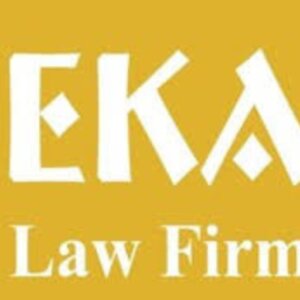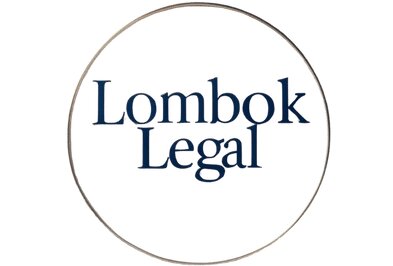Best Licensing Lawyers in Indonesia
Share your needs with us, get contacted by law firms.
Free. Takes 2 min.
Or refine your search by selecting a city:
List of the best lawyers in Indonesia

Jiwangga Law Office | Lawyer Surabaya | Advokat Surabaya | Pengacara Surabaya
30 minutes Free ConsultationAbout Licensing Law in Indonesia
Licensing law in Indonesia encompasses a wide range of areas, including business licenses, intellectual property rights, environmental permits, and more. This legal framework is essential to ensure regulatory compliance, promote fair competition, and safeguard the rights of businesses and individuals. The licensing process can be complex, often involving various governmental agencies at different levels. Businesses operating in Indonesia must understand and navigate these laws to remain compliant and protect their interests.
Why You May Need a Lawyer
Engaging a lawyer experienced in licensing law can be crucial for several reasons. Businesses may encounter challenges such as navigating the complex bureaucracy, ensuring compliance with local regulations, drafting or negotiating licensing agreements, and resolving disputes over licensing terms. Additionally, a lawyer can provide valuable guidance in protecting intellectual property, securing necessary permits, and understanding the legal implications of licensing regulations in your specific industry.
Local Laws Overview
Indonesia's licensing laws are governed by various statutes and regulations, often specific to the industry or nature of the license. Key aspects include:
- Business Licensing: Businesses must obtain the appropriate licenses and permits to operate legally. This may involve registration with the Investment Coordinating Board (BKPM) for foreign investments, obtaining a Trading Business License (SIUP), or other sector-specific permits.
- Intellectual Property: Licensing regarding intellectual property, such as trademarks, copyrights, and patents, is managed through the Directorate General of Intellectual Property. Legal protection and enforcement are critical for maintaining business value and market position.
- Environmental Regulations: Companies must secure environmental permits to ensure their operations do not harm the environment, adhering to the Ministry of Environment and Forestry guidelines.
Frequently Asked Questions
What is the process for obtaining a business license in Indonesia?
To obtain a business license in Indonesia, you need to determine the type of license required for your specific business activity, register your company, and submit the necessary documents to the relevant governmental agency. The process often involves multiple steps and might require working with local authorities.
How can I protect my intellectual property in Indonesia?
Protecting your intellectual property involves registering your trademarks, copyrights, and patents with the Directorate General of Intellectual Property. It's advisable to consult a legal expert to navigate the registration process and ensure comprehensive protection.
Are there different types of licenses required for different industries?
Yes, different industries in Indonesia have specific licensing requirements. For example, financial services, food and beverages, mining, and telecommunications each have unique regulations and licensing criteria.
Can a foreign company apply for a license in Indonesia?
Foreign companies can apply for licenses, but they must comply with foreign investment regulations, including establishing a local legal entity and obtaining approval from the Investment Coordinating Board (BKPM).
What are the consequences of operating without a proper license?
Operating without a proper license can result in penalties, fines, legal action, and even the suspension of business activities. It is essential to ensure all required licenses are obtained and maintained.
How long does it take to acquire a business license?
The time required to acquire a business license can vary significantly depending on the complexity of the business and the type of license. It typically ranges from a few weeks to several months.
What should I do if my license application is rejected?
If your license application is rejected, you should seek legal advice to understand the reasons for rejection and explore options for re-application or appeal.
Do I need to renew my license periodically?
Yes, most licenses require periodic renewal. The renewal frequency depends on the type of license and industry-specific regulations. Staying informed about renewal deadlines is crucial to maintaining compliance.
How can I ensure compliance with licensing regulations?
To ensure compliance, regularly review local laws, maintain open communication with regulatory bodies, and seek legal expertise to navigate changes in regulations effectively.
What role does the government play in the licensing process?
The government plays a central role in the licensing process by setting regulations, processing applications, issuing licenses, and enforcing compliance. Collaboration with relevant agencies is crucial for successful licensing.
Additional Resources
For further assistance, consider the following resources:
- The Ministry of Trade for business licenses and trade regulations.
- The Directorate General of Intellectual Property for intellectual property matters.
- The Investment Coordinating Board (BKPM) for foreign investment and business permits.
- The Indonesian Chamber of Commerce for business support and networking.
- Legal associations and professional bodies offering specialized advice and services.
Next Steps
If you need legal assistance in licensing, it is advisable to start by consulting a lawyer specializing in Indonesian licensing law. They will provide you with expert guidance tailored to your specific needs, help navigate the application process, and ensure compliance with all relevant regulations. You can begin by seeking recommendations, checking with professional organizations, or searching online directories for qualified legal practitioners in this field.
Lawzana helps you find the best lawyers and law firms in Indonesia through a curated and pre-screened list of qualified legal professionals. Our platform offers rankings and detailed profiles of attorneys and law firms, allowing you to compare based on practice areas, including Licensing, experience, and client feedback.
Each profile includes a description of the firm's areas of practice, client reviews, team members and partners, year of establishment, spoken languages, office locations, contact information, social media presence, and any published articles or resources. Most firms on our platform speak English and are experienced in both local and international legal matters.
Get a quote from top-rated law firms in Indonesia — quickly, securely, and without unnecessary hassle.
Disclaimer:
The information provided on this page is for general informational purposes only and does not constitute legal advice. While we strive to ensure the accuracy and relevance of the content, legal information may change over time, and interpretations of the law can vary. You should always consult with a qualified legal professional for advice specific to your situation.
We disclaim all liability for actions taken or not taken based on the content of this page. If you believe any information is incorrect or outdated, please contact us, and we will review and update it where appropriate.
Browse licensing law firms by city in Indonesia
Refine your search by selecting a city.













